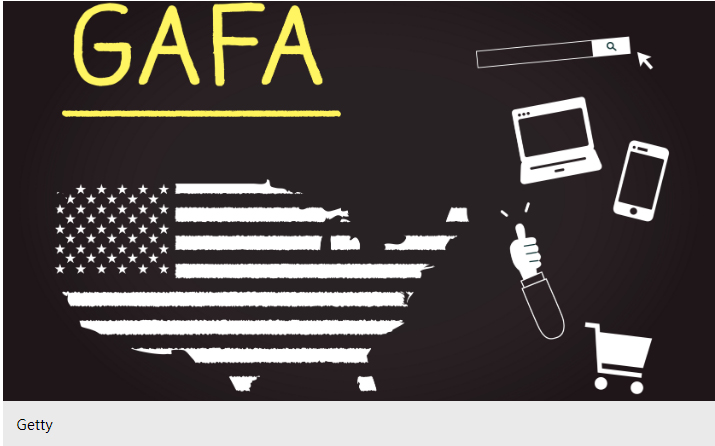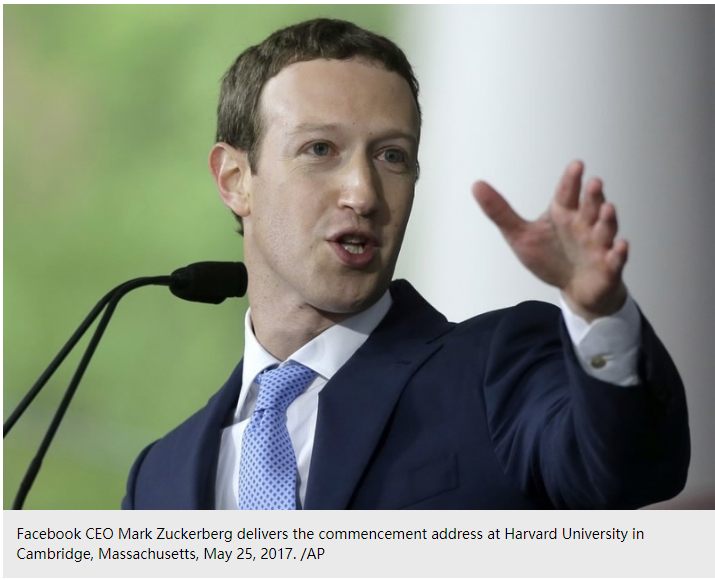
Antitrust hearing only a beginning on accountability
Posted On Wednesday, Jan 13, 2021 by Wamika Kapur under Governance Policy

Antitrust hearing only a beginning on accountability
Editor's note: Wamika Kapur is a fellow at international think tank Global Policy Insights and an Indian PhD scholar of international relations at South Korea's Yonsei University. The article reflects the author's opinions, and not necessarily the views of CGTN.
On October 6, the U.S. House Judiciary Committee's subcommittee on Antitrust, Commercial and Administrative Law released a report titled "Investigation of Competition in Digital Markets" followed by the hearings with the CEOs of GAFA (Google, Apple, Facebook and Amazon). This 449-page report is a culmination of a bipartisan investigation spanning over 16 months on the state of competition in digital markets, aimed at looking at whether current antitrust laws, policies and frameworks are functional.
The undertaking will go down in history as a landmark tech oversight moment due to not just the sheer size and scope of the investigation, 1.3 million documents and over 217 questions asked in hearings, but the fact that while disagreeing on the solutions there was a bipartisan consensus on the problem. For the first time, all the CEOs of GAFA, which are collectively valued at over $5 trillion, were answerable to Congress, which was taking its role as regulator seriously. The CEO of Microsoft, Satya Nadella, said "all companies are software companies" and the findings and reforms in the report can revolutionize the digital world, business and the millions of lives they impact in lasting ways.
The report concluded that these dominant platforms possess monopoly power due to factors including their role as "gatekeepers" of key distribution channels which have allowed them to control access to digital markets and have engaged in a myriad of anti-competitive practices ranging from "buying, copying, or cutting off" potential competition, self-preferencing, monopolizing small businesses on their platforms, charging exorbitant fees, imposing oppressive contract terms and extracting valuable data from people.
While the scrutiny was on Amazon for treatment of third party sellers and use of their data, Apple for App Store, Facebook for stifling competition and its prior acquisitions, Google for market power in online advertising and using its search protocols to boost its products, most claims overlapped and the conclusion was that all the big tech companies were monopolies that had abused their market positions.
Politics featured in the line of questioning in the form of questions to Facebook regarding filtering political viewpoints and promoting conservative views, alleged Russian election interference and its role in promoting racism and antisemitism. Google pledged to not adopt an anti-police policy following a letter from 1,650 Google employees alarmed by police brutality. All four companies promised that they do not tolerate the sale of products using forced labor on their platform. Further, questions were raised about specific forms of pandemic profiteering.

In my opinion while the recommendations are apt and represent the issue well, their implementation into legislation would be an overdrawn process due to lack of consensus amongst committee members, for example on breaking up Big Tech, and retroactive effects of proposals, Facebook's acquisition of Instagram.
GAFA was quick to respond to the allegations calling them unfair and Amazon suggesting they were "fringe notions" and "regulatory spit balling." They stated that their services provide beneficial products and their scale makes their services better. The biggest underlying contention was that the accusations levied were since these companies set the rules of the game, but the defense was based on the consumer being the final decision-maker.
A closer look into the allegations shows that while this hearing is aimed at Big Tech, the behaviors are not unique to them but a general capitalistic American way of doing business where success is measured in profits, growth and domination. The same was true for the oil and railroad industries in the past as it is for Big Tech, media and airlines today.
This also gives us a glimpse into threats to data domestically by American companies which use it to gain an advantage over market competitors while claiming to hold up "American Values."
Some might suggest that this is a classic case of techlash, using regulations to stifle innovation, however, I contend that any benefit acquired from innovation can be countered by the harm from these anti-competitive practices. The aim here is to free innovation to everyone and remove the negative consequences of first-mover advantage such barriers to entry. It also allows for a deeper understanding of the impacts of networking effects, killer apps and lock-ins created by revolutionary tech.
Another puzzling aspect is the non-inclusion of Microsoft, considered an industry leader and valued at $3 trillion with a host of accusations levied against it.
The report is not a verdict but a precursor to separate new and ongoing lawsuits against GAFA by the Department of Justice and FTC. It is merely a beginning of accountability which will hopefully extend into practices of these businesses in other countries. Unfortunately, any changes implemented will not be soon and will be heavily contested by GAFA and the business industry at large.

Wamika Kapur
Wamika Kapur (wamika_kapur) is currently a Phd Candidate at Seoul's Yonsei University. She was a Research Assistant to Legislators (RAL) at Rajiv Gandhi Institute of Contemporary Studies (RGICS), a 25-year old national policy think tank in India. Prior to her time at RGICS, she studied law at the Indian Law Society (ILS) Law School, Pune, India in 2014 and pursued her Masters in East Asian Studies from University of Delhi in 2016, with a concentration on Korea and China. Her research is focused on US-China relations, Technology & Politics, Foreign Policy and National Security.
Recent Articles
- James Silverman ( Founder, U&I Global) interviews Arpit Chaturvedi (Co-founder and CEO, GPI) on AGENDA 2030- DO WE WANT IT? CENTRALISATION AND THE SDG’S
- Big Tech on Section 230 – Censorship or Disregard?
- Global Policy Insights (GPI) Annual India Colloquium.
- Antitrust hearing only a beginning on accountability
- The Commonwealth: Optimising Networks & Opportunities for the 21st Century
- Population Data in the Time of a Pandemic
- The Disconnect with Ground Realities
- Models to Make Vocational Training Work in India
- Comparing Health Care Systems in England, Taiwan, and the United States
- Commonwealth In Dialogue : Academic Series
- Are we rewarding fence-sitters and free-riders by relaxing penalties on CSR law violations?
- Changing Economic Models: From Mixed Economy to Liberalization, Privatization, and Globalization in India
- Goods and Services Tax (GST) – a Seventeen Year Ordeal to a Uniform Indirect Tax Regime in India
-
Commonwealth In Dialogue: International leader Series
Podcast: Patsy Robertson, Chair Ramphall institute in conversation with Uday Nagaraju, Executive President and Neha Dewan, Fellow & Researcher about Commonwealth - Creating a future-proof curriculum for the digital age
- Commonwealth In Dialogue: High Commissioner Series": H.E Dr. Asha-Rose Migiro
- High Commissioner of the United Republic of Tanzania to the United Kingdom & Republic of Ireland in conversation with Uday Nagaraju, Executive
- Commonwealth In Dialogue: Parliamentary Speaker Series
- Louisa Wall - Marriage Equality in New Zealand
- Hon An치lu Farrugia, Speaker of the House of Representatives Parliament of Malta & Secretary General CPA Small branches speaks to Uday Nagaraju, Executive President & Co-founder of Global Policy Insights on Commonwealth, CPA Small branches and Parliament of Malta
- Commonwealth Series: Cyprus High Commissioner to the UK H.E Euripides L Evriviades interviewed by Uday Nagaraju, Executive President Global Policy Insights & Neha Dewan, Fellow & Researcher
- Global Policycast: Ex-Minister of State in the Ministry of Agriculture and Lands- Victor Cummings interviewed by Arpit Chaturvedi, C.E.O Global Policy Insights.
- Global Policycast: Ex-Minister of Youth, Paraguay- Magali Caceres interviewed by Arpit Chaturvedi, C.E.O Global Policy Insights.
- Commonwealth Series: CPA Secretary-General Akbar Khan interviewed by Uday Nagaraju, Executive President Global Policy Insights & Divya Pamulaparthy
- The Perils of Decentralization and other Buzzwords in Governance and Policymaking
